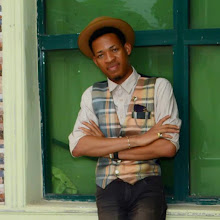Labour party conference 2016
 |
Jeremy Corbyn MP gives the thumbs up to supporters. Photo: Getty ImagesLiverpool: In Liverpool on Tuesday, a fringe session of the Labour Party's annual conference was titled "What would it take for Labour to win a general election?" |
It took place in one of the venue's smallest rooms.
This, in a nutshell, was the problem being wrestled with by the thousands of party members, activists, organisers and trade unionists who have gathered by the Mersey.
Is this a party that wants power? Or in the era of Jeremy Corbyn, whose leadership mandate was renewed and increased on the weekend, is Labour more interested in presenting a pure, classic left wing alternative to the Tories?
On Monday shadow chancellor John McDonnell had suggested the latter, proposing a big-borrowing, taxing, spending agenda (including a £10/hour living wage) and assuring delegates, "in this party you no longer have to whisper its name, it's called socialism".
But on Tuesday popular new Labour London mayor Sadiq Khan was in no doubt of the former, in a speech to the main conference hall about as subtle as an East End brick.
 |
| Jeremy Corbyn, leader of the U.K. opposition Labour Party, center, is surrounded by members of the media. Photo: Simon Dawson |
His first three words were: "Labour in power". He would go on to say the word "power" another 37 times – averaging once every 20 seconds.
"It's only when Labour is in power that we get the chance to fix the problems that we most care about," he said, citing the housing crisis, air pollution, pay and conditions, social integration as opposed to hate crimes, and gender equality.
"Labour is not in power in the place that we can have the biggest impact in our country," he said. "Labour out of power will never ever be good enough."
Later, deputy leader Tom Watson played a similar tune, admitting "these haven't been the best few months of my 30 years in the Labour party".
 |
| David Cameron, former U.K. prime minister, center, Jeremy Corbyn, leader of the U.K. opposition Labour Party, left, and Tom Watson, deputy leader of the U.K. opposition Labour Party, right. Photo: Simon Dawson |
"We can't afford to keep doing this," he said, not saying exactly what "this" was – because everyone knew.
"We owe the British people – our people – an alternative… when we were in government, we got things done."
Labour is losing the argument on crucial areas such as the economy, climate change, Europe and migrationWigan MP Lisa Nandy
His speech mentioned Margaret Thatcher more times than his own party leader (that is, once compared to not at all), and Theresa May many more times than both.
He said he "never got over growing up under Thatcher and that's not what I want for my children… we can't let them grow up in Tory schools, paying to go to Tory hospitals, working all hours for low pay in jobs the Tories have degraded."
Mr Corbyn was on stage for both speeches and was noticeably slower to clap than many of his comrades, though he congratulated both afterwards.
It is his turn to speak on Wednesday, to close the conference.
Meanwhile, back at the fringe session, widely-admired Wigan MP Lisa Nandy admitted the mountain the party has to climb if it does want power.
After anticipated boundary changes Labour will have to win 106 seats – and if it can't make huge and unexpected gains in the SNP-dominated Scotland, that means a swing in the rest of the country greater than Tony Blair's win in 1997.
Worse, four out of five new votes in the key marginals will have to come from people who voted Tory not just in 2015, but in 2010 as well.
"Labour has fundamental problems," she admitted. "I feel it every day in my constituency."
Labour is losing the argument on crucial areas such as the economy, climate change, Europe and migration, she said.
The party needs to better understand where the public are on these issues.
"We need to have an alternative, not just opposition," she said. "We need a serious economic strategy.
"Communication has been an issue for the Labour Party for quite a long time."
But she also held out hope that Labour could regain voters' trust by demonstrating in Labour-dominated councils across the country that it was resisting "Tory Britain" with pro-community projects and policies.
She said that, perversely, she had taken heart from encountering a constituent who was motivated to go out in the pouring rain to vote for UKIP.
"People aren't apathetic, they are angry," she said. "And I can work with anger."










Leave a Comment